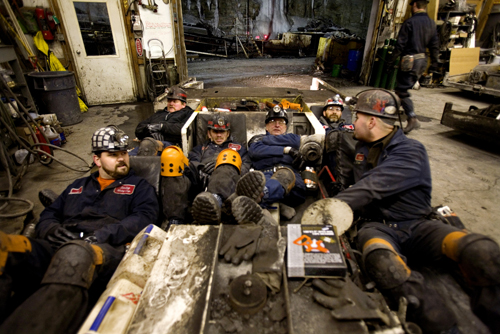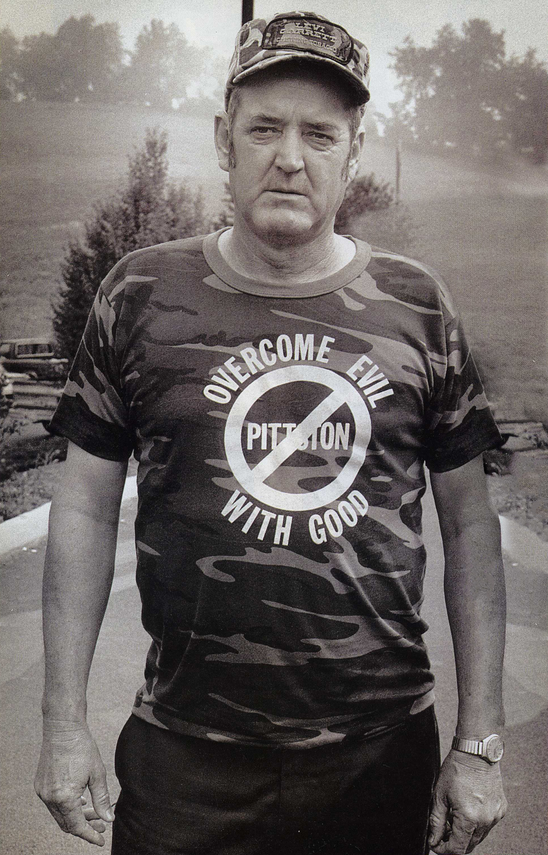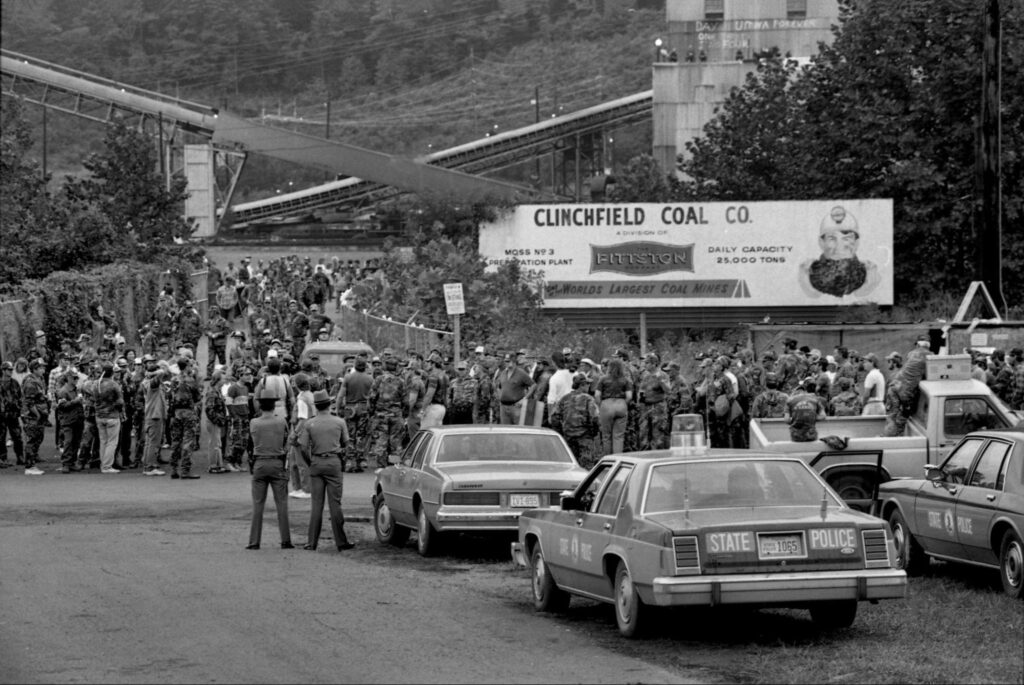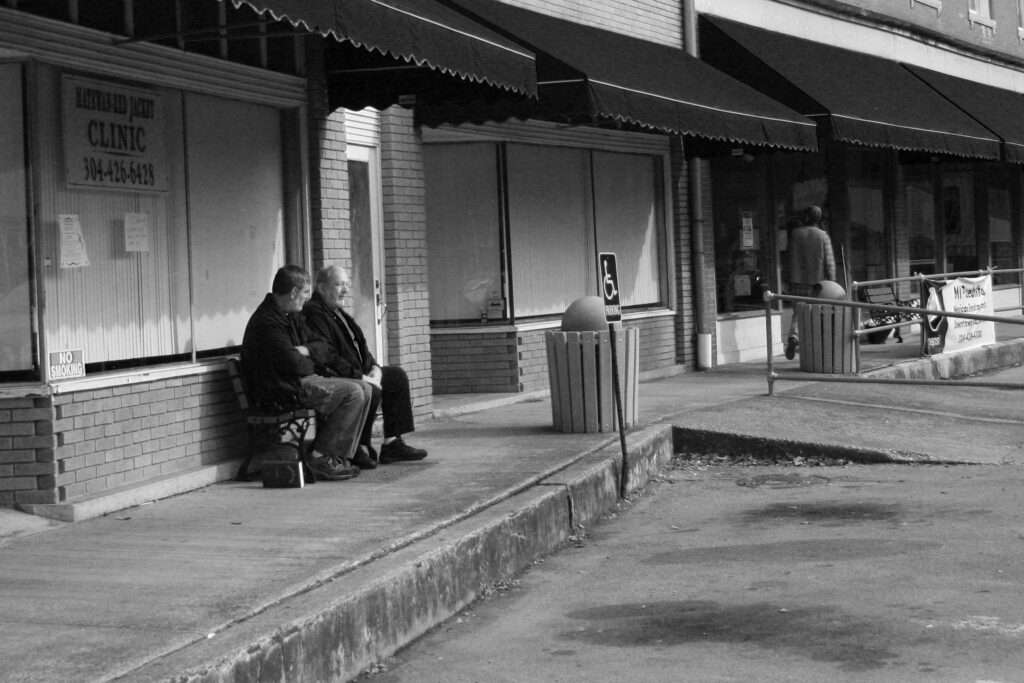We are finding more and more ways to overextend ourselves in Appalachia. Our wants create debt; our debts force us to work dangerous environmentally destructive jobs. Nice homes, nice vehicles, nice this…nice that. Happiness is no longer admiring the small things—happiness became what people on TV told us it should be, it became what salesmen and realtors told us we needed to have.
I’ve put a lot of thought into such things over the past couple of years. After losing everything in 2010, it was thoughts similar to these that helped me take leave of the mining industry. Life unto that point had been like that of many others I suppose, searching for happiness within an economic system built upon greed and selfishness. Granted, I had a rougher time than most in this particular struggle only to find that finally having more money was worthless if you could not enjoy it.
I knew men who enjoyed their work. I knew men who, even though they remained tired and coped with chronic pain, found happiness in their life—but it was primarily through the material things they purchased. These days I worry about them and their families. I worry about how they will cope when the coal industry finally lays them off to preserve stockholder dividends and CEO’s bonus’.
I know there are a few coal miners and their families who do realize this and most of what I’m about to say does not apply to them, but sadly those folks are becoming fewer and further between than ever before.

Those of us who have taken care to study the history of the coal industry, and have seen how powerful companies regard the Appalachian coal miner, know that it is coming. We are screaming at the tops of our lungs to coal miners, trying in vain to tell them that they will suffer just as much as our forefathers did with every coal bust that came down upon them before.
Today’s coal miners do not listen. In fact, they hate those of us who are trying to warn them. Instead they listen to the coal companies and coal politicians, taking in all of their propaganda, being led to believe there are jobs to be fought for until they walk to the mine gates that are closed in front of them, until they receive that notice that their retirement fund is gone.
They will continue to believe what they are being told by mine management, politicians, their buddies, and their buddy’s buddies. They will continued to believe that the softening coal market and impending layoffs are all about EPA regulations and a president who supposedly hates coal. They will continue to believe scientists are “full of sh*t” for no other reason than “they just don’t by God understand what they’re talking about” or because “they don’t know what it’s like to have to work in a coal mines to feed their family.”
This is the nature of it, and it gives me no pride in saying such things about some of my fellow Appalachians, but the truth can be found in every ill word spoken by them towards people of a different opinion. It comes with every close-minded comment I ever heard underground about how “all muslim’s are terrorists and we should shoot ever damn one of em” or in the prejudiced jokes and comments I heard made about people of color and then witnessed those same men act friendly towards their African-American co-workers.
Those coal miners and their families are not true Appalachian people anymore. True—honest to God—Appalachians would think of their neighbors before a paycheck. They would not trust the real “outsiders,” companies who came in decades ago and swindled our forefathers out of their land and mineral rights, company officials who spend their days flying in corporate jets, who work in lavish offices, and live in million dollar homes far away from the coalfields they mine reaping the rewards of other people’s hard labor.
If I’m wrong, then perhaps Appalachia was never the great place I once believed it to be—the place I once had so much pride in because of the kindness of people.
The “outsiders” who have come to help Appalachian people save their homes, to protect their water, and to bring in better jobs for future generations—who in many cases came without a DIME to their name—are more Appalachian than some of the people who have lived in the mountains for generations but have traded their morals and values to make high wages. These idiots are happy to sell their soul to the company store. Sadly they are also selling their children’s futures as well.



I try to think of the images of my great grandfather, well up in years and with black lung, helping the widow of my paternal great grandfather plant their garden. I try to remember being a boy and standing among the thousands of union mining families who had given up their paychecks to make sure the health benefits of disabled miners, retirees, and widows was given back to them by Clinchfield Coal, a subsidiary of Pittston Coal Company. That was my Appalachia.
Today, Appalachia has been replaced with $50,000 pickup trucks, Harley Davidson Motorcycles, Camaros, Friends of Coal stickers, and people fighting to make “Coal Mining Our Future” replete with It’s been replaced by young men and women who are so blinded by their high paychecks and selfishness that they turn a blind eye to their history and what’s happening to their neighbors.
It makes me sick.

